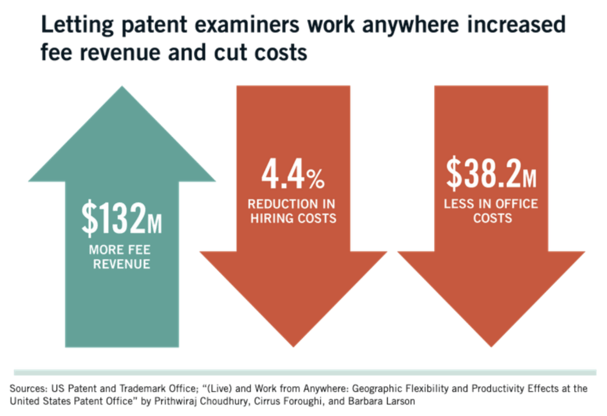
How Can a Global Crisis Benefit Remote Work Culture?

“There’s no place like home.”
We’ve all heard the cliché, but people in today’s world actually seem to mean it. Whether they work remotely or love to shop online from the comfort of their own couch rather than in store, people embrace the sentiment more now than ever before.
After all, it is 2020. From paying bills digitally to shopping on eCommerce sites, we can run through most of our daily tasks without even having to leave our beds.
And for many companies, selling remotely is just as easy thanks to strategies and tools that help market their products and convert their prospects seamlessly. To move their business online, companies can create landing pages, market on social media channels, and utilize free email marketing services.
But what about the employees of those businesses? What happens to them when companies transition to working from home or a major event, like the COVID-19 pandemic, leaves them with no other choice but to change the way they work?
Well, here’s my take on it:
3 Reasons to Embrace It
Even in the post-pandemic world, working from home will continue to grow in popularity. Remote work is becoming the new norm, so if your company hasn’t already become remote during the COVID-19 pandemic, you should start testing the waters now.
If your business requires having a physical store, try to use remote work culture on the teams that could potentially work from afar. For example, your finance team could very well work from home, as long as you provide those employees with all of the proper tools and technology. The same may go for your sales teams, customer service teams, and even management teams.
But why make the transition to a more remote-friendly company? Here are 3 reasons why your business should embrace working from home:
1. Expand Your Talent Pool
During the hiring process you might find the perfect candidate, only to realize that they’re located in a different city. If this candidate isn’t willing to relocate, you may lose out on hiring the best person for the job. But if you had a remote team, you’d be able to hire employees regardless of where they live. Hiring for remote positions can help your business attract top talent that you wouldn’t have access to otherwise.
2. Cut Down on Costs
Transitioning to a remote workforce is the perfect way to reduce office expenses. According to Harvard Business School, working from home can lower a company’s hiring and office costs while increasing overall revenue:
3. Work and Train More Efficiently
This reason may sound a little counterintuitive. After all, training new hires remotely is challenging and employees can easily slack off while they’re working from home, right?
Wrong.
Let’s talk about training first.
Training needs to be ongoing—especially when done remotely. If any of your new hires are remote, you need to build a virtual onboarding program and give them access to proper resources. Similar to running an online school, you need to make sure that your employees can easily access these onboarding resources during their training sessions and on their own. From sending them your company’s org chart to hosting a virtual team happy hour, there are several ways you can introduce remote new hires to your company’s values and culture.
Your remote new hires will need someone to guide them through training, so consider creating a virtual mentorship program. Partner them with senior members on their teams and set up a series of virtual meetings so that they can connect on a regular basis.
Onto the next question: what happens after onboarding?
Some may assume that employees who work from home aren’t as productive as those who work in the office. However, many companies that have become remote during this time have actually seen productivity skyrocket.
Working remotely isn’t necessarily a basic nine-to-five job. Employees can eliminate their morning commutes, be flexible when it comes to hours and schedules, and work from the comfort of their home. Remote work enables employees to work on their own time, which reduces their stress levels and actually increases their productivity. And in the end, your employees’ productivity generates revenue for your company.
So to answer the title of this blog post’s question, this global crisis has proved that working from home can actually benefit businesses across all industries. Embrace remote work by hiring global talent, training employees continuously, and remembering that companies that invest in remote work will be the ones that thrive in the post-pandemic world.

See how Namely's flexible solution will help you streamline your HR processes by having your people, payroll, and benefits info all in on place.
Get a demoYou May Also Like
Get the latest news from Namely about HR, Payroll, and Benefits.
Thanks for subscribing!


Get the latest news from Namely about HR, Payroll, and Benefits.
Thanks for subscribing!



![[Survey] Should Employers Cover WFH Costs?](https://f.hubspotusercontent40.net/hubfs/228948/windows-12OZwblVQUg-unsplash.jpg)
